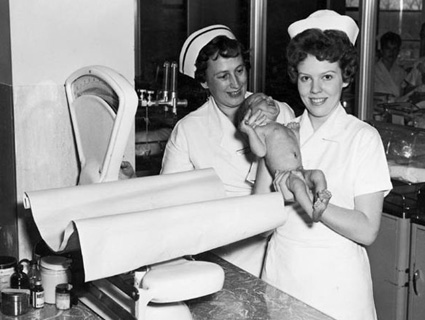
Mia Love speaks at the 2012 Republican National Convention in Tampa, Florida. Ron Sachs/DPA/ZUMAPRESS.com
When she spoke at the Republican National Convention last month, Mia Love, a GOP rising star who’s vying to become the first black Republican woman elected to the House, wowed delegates with her parents’ up-by-their-bootstraps tale. She said their story of coming to America from Haiti with $10 in their pockets formed the basis for her own belief in self-reliance and her staunch opposition to government handouts.
Love—mayor of the small town of Saratoga Springs, Utah—has been widely spotlighted as a pol who’s going places in the GOP, and she’s linked herself closely to GOP presidential contender Mitt Romney. Recently, she served as an official surrogate for Romney on a campaign swing through Nevada, and she MC’d a fundraiser for him in Utah last Tuesday. Though a child of immigrants, Love has embraced much of her party’s tough stance on immigration. She has implied that she would back deporting the US-born children of illegal immigrants so as not to reward “bad behavior.” Yet by Love’s own account, she is what Republicans derisively call an “anchor baby”— someone born to immigrant parents specifically to game the immigration system and secure legal status for family members.
Love doesn’t talk about this aspect of her family’s immigration story now that she’s running for Congress, but she once said in a little-noticed interview that her birth on US soil helped bring her siblings to America. In January 2011, Love told the Deseret News that her parents, Jean Maxime and Marie Bourdeau, came to New York in the 1970s, fleeing poverty and looking for a better life. Love said that her parents immigrated legally, but were forced to leave their two young children behind in Haiti because their visa didn’t allow them to bring the kids. But, writes the Deseret News:
There was an immigration law in place, however, that would grant the entire family citizenship if Jean Maxine and Mary had a baby in America.
But there was a deadline.
The law was set to expire on Jan. 1, 1976.
On Dec. 6, 1975, with 25 days to spare, Mia was born in a Brooklyn hospital.
In no time, her older brother and sister were sent for in Haiti and the family was re-united.
Says Mia: “My parents have always told me I was a miracle and our family’s ticket to America.”
*Love appears to be describing a provision in an old immigration law that allowed residents of the Western Hemisphere to apply for permanent resident status if they had a US-born child before 1976. The law made an exception to longstanding immigration policy that, since 1924, has barred minor children from petitioning for permanant residency for their parents. Love’s story raises many questions about the legal status of her parents after they arrived in the US. Immigration lawyers contacted by Mother Jones say that if the Bourdeaus were in the US legally on a permanent visa, they would have been able to bring her siblings, according to the law at the time. However, if they had come on a tourist visa, as Love now claims, and had overstayed illegally, they might have been able to use her birth to eventually stay in the US and reunite their family.
Though Love’s story raises questions, her campaign declined to make the candidate available for an interview or respond to repeated requests for clarification concerning her account. Her parents—whose phone number has been disconnected—could not be reached for comment; Love’s campaign told Mother Jones it was specifically shielding them from press interviews.
Along with potential factual discrepancies, Love’s account is problematic from another perspective—a political one. Her story of being her “family’s ticket to America” runs contrary to conservative sentiment and policies on immigration. In recent years, prominent GOPers in the House and Senate have pushed unsuccessfully to end birthright citizenship (as outlined in the 14th Amendment) for so-called “anchor babies.” (See here for why anchor baby concept itself is largely a myth concocted by conservatives seeking crackdowns on illegal immigrants.)
Even so, Love has repeatedly highlighted her parents’ story to justify a host of policy proposals targeted at the country’s most vulnerable, including poor immigrants, whom she says are pushed into “dependency” by anti-poverty programs. More broadly, she’s emphasized how their tale solidified her conservative views. “My parents immigrated to this country from Haiti with $10 in their pockets, and they worked hard for everything that they have,” Love told Fox News’ Chris Wallace recently, echoing her RNC speech. “My parents taught me that we weren’t entitled to anything that we didn’t own, earn, work for, or pay for ourselves. And I’ve taken those principles everywhere I’ve gone. And that’s how I ended up the way I am.”
Love has proposed eliminating the federally subsidized school lunch program and the funding that supports special education in public schools. She wants to halve the Earned Income Tax Credit that keeps millions of working people out of poverty, and she would radically slash housing subsidies that keep millions of poor people off the streets.
Love is running against six-term Rep. Jim Matheson, the scion of Utah’s only real Democratic dynasty and a politician Republicans have repeatedly tried to redistrict out of office. Despite Love’s lack of experience, the GOP has provided her with major backing, funneling $1 million into the race and setting up a Salt Lake City call center on her behalf. Some of the party’s biggest names have come to Utah to fundraise for Love, including GOP vice presidential nominee Rep. Paul Ryan (R-Wisc.), House Majority Leader John Boehner (R-Ohio), Sen. John McCain (R-Ariz.), and former Secretary of State Condoleezza Rice. Ann Romney has also offered an endorsement, and Josh Romney is the chairman of Love’s campaign.
Despite the national firepower, Love was trailing by double digits in recent polls. While Utah is one of the country’s more homogenous states, the district Love is running in is 6 percent Latino. Love’s lack of sympathy for people who may have a lot in common with her parents is unlikely to win her any fans in that voting bloc.
Correction: The original version of this article stated that federal immigration officials and immigration lawyers consulted for this story could find no law that matched the details Love shared with the Deseret News. While there was no law that would have conferred citizenship on Love’s family due to her birth in the US, a pair of immigration lawyers, following the publication of the article, came forward in Forbes to point out an old law that would have allowed a minor child to petition for permanent resident status for family members. You can read more about what that means here.














